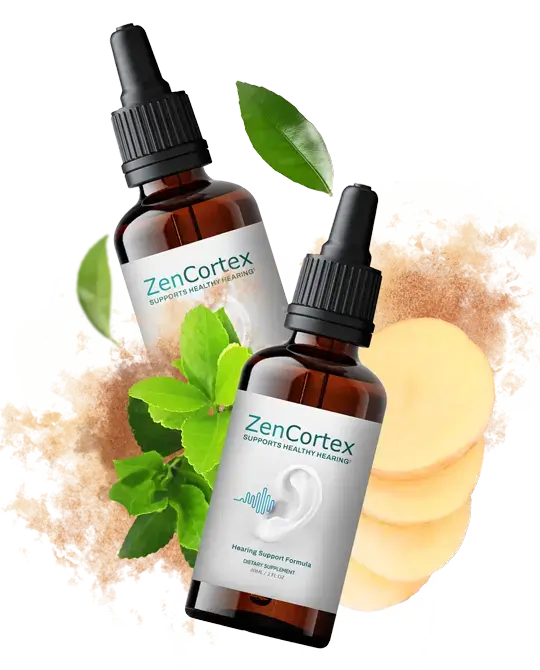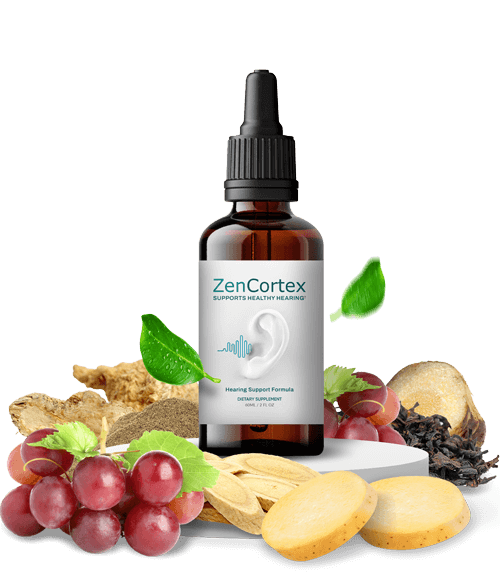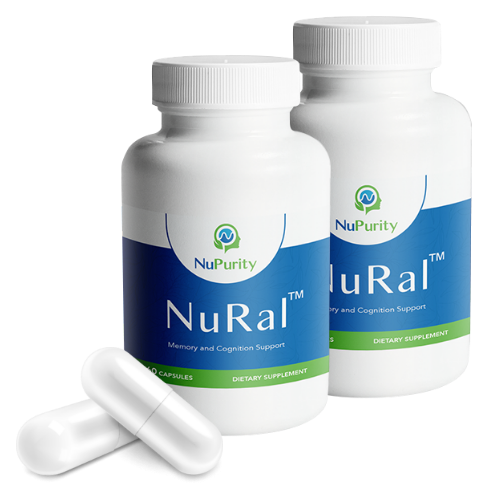#cognitivehealth
Text
#5 What is Somatic Based Therapy?
CBT is well renowned for its talking, and easily accessible techniques. However, it is also unfortunately known as being ineffective for treating more complex psychiatric disorders. Henceforth, Somatic Therapy became another form of care for those afflicted with their series of unfortunate events. Somatic therapy includes talk therapy, but also concentrates on other methods of working through emotions and events (so is effective for PTSD), for example via the movement of your eyes you can limit flashbacks that could potentially cause a relapse and otherwise considerable emotional distress. It "incorporates body-oriented modalities such as dance, breathwork, and meditation to support mental healing".
Unlike standard mental health therapy, such as CBT which focuses predominantly on the mind," somatic therapy incorporates body-oriented modalities such as dance, breathwork, and meditation to support mental healing. In addition, somatic experiencing therapy sessions include talk therapy and mind-body exercises.
Beyond the standard somatic therapy, numerous subgroups use its framework in specific ways. These include:
Sensorimotor psychotherapy 1:
A comprehensive therapy that uses the body as both a source of information and intervention targets.
The Hakomi Method 2:
Psychotherapy that integrates scientific, psychological, and spiritual sources, focusing on four core concepts: gentleness, nonviolence, compassion, and mindfulness.
Bioenergetic analysis 3:
Body-psychotherapy that combines bodily, analytic, and relational work based on understanding energy.
Biodynamic psychotherapy 4:
A combination of allopathic (medical) and holistic therapy modalities that include physical massage by the practitioner
Brainspotting:
In addition to mind and bodywork, this therapy incorporates eye positioning to retrain emotional reactions.
Those on the ASP tend to benefit from Somatic as I believe many hold forms of trauma similar to PTSD and can allow for those with alexithymia to bring awareness to the ways their body responds to their environment and experiences.
#therapy#mental problems#mental health#mental illness#autistic community#complex ptsd#actually ptsd#somatichealing#somatictherapy#cognitivehealth#cbt therapy
14 notes
·
View notes
Text

Amla Jam. Amla, also known as Indian gooseberry, is rich in anti-inflammatory compounds and antioxidants that help provide relief from acidity, and indigestion, Read the full recipe https://foodrecipesoffical.com/wp-admin/post-new.php… https://foodrecipesoffical.blogspot.com/2023/12/498-healthy-food-recipe-amla-jam-its.html
#AmlaJam#HealthyEating#NutrientRich#Superfood#VitaminCBoost#AntioxidantPower#ImmuneSupport#DigestiveHealth#SkinWellness#MetabolismBoost#HeartHealth#AntiInflammatory#HairCare#CognitiveHealth#HomemadeJam#WellnessWednesday#FunctionalFoods#NaturalRemedy#BalancedDiet#DeliciousNutrition
2 notes
·
View notes
Photo

Owning a pet is linked to having better cognitive health in advanced age
Owning a pet also keeps things ticking upstairs. You have to remember to feed, get water, take for walks, get vet care, clean, etc. … even a weasel haha
#evenaweasel#petownership#cognitivehealth#freeadvice#memory#keepticking#caregiver#pets#encouraging#companionship#stayingfit#acrylic#painting#artoftheday#artists on tumblr#tumblrtarian#artwork#dailyartwork#outsiderart#lowbrowart#kunst#flomm#flommist#sadahirecoasters#beercoasters#handpaintedbeercoaster#perspective#heartwarming
5 notes
·
View notes
Text
Sharper Focus and Calmer Mind: My Experience with ZenCortex Supplements
Feeling scattered and forgetful had become a daily struggle. Work deadlines loomed, and even simple tasks felt overwhelming. I tried various methods to improve my focus – meditation apps, to-do lists, even extra sleep – but nothing seemed to stick. Then, I came across ZenCortex Supplements, and I'm happy to report a positive shift in my mental clarity and overall well-being.
Natural Ingredients for Peak Performance
What initially drew me to ZenCortex was its focus on natural ingredients. Packed with vitamins, minerals, and herbal extracts known for their cognitive benefits, the supplement promised a safe and natural approach to boosting focus and memory. I was wary of harsh stimulants or medications, and ZenCortex seemed like a promising alternative.

Enhanced Focus and Improved Concentration
Within a couple of weeks of taking ZenCortex daily, I noticed a significant improvement in my ability to concentrate. Distractions became less intrusive, and I found myself staying on task for longer periods. Multitasking, which once felt like juggling chainsaws, became more manageable. My ability to absorb and retain information also improved, making learning new things at work a breeze.
Sharper Mind, Calmer Approach
The benefits of ZenCortex extended beyond just focus. I also noticed a positive impact on my overall mental well-being. The feeling of being constantly overwhelmed and on edge started to fade, replaced by a sense of calm clarity. Deadlines no longer felt like looming monsters, and I was able to approach tasks with a more composed and collected mind.

Safe and Effective Support
Throughout my experience with ZenCortex, I haven't experienced any negative side effects. The capsules are easy to swallow, and the recommended dosage is simple to follow. It's become a part of my daily routine, and I feel confident that I'm giving my brain the natural support it needs to function at its best.
Investing in Cognitive Performance
While ZenCortex might seem like an investment compared to a cup of coffee, I view it as an investment in my cognitive performance and overall well-being. By promoting focus, clarity, and a calmer mind, ZenCortex helps me be more productive, efficient, and less stressed at work.
Highly Recommend for a Brain Boost
If you're looking for a natural way to improve your focus, memory, and overall mental clarity, I highly recommend giving ZenCortex Supplements a try. Its natural formula, combined with the noticeable improvement in my cognitive function, has convinced me of its effectiveness. While individual results may vary, ZenCortex can be a valuable tool in your quest for a sharper mind and a calmer approach to daily life.
#FocusMode#MentalClarity#BrainPower#NaturalWellness#BeatStress#ProductivityBoost#MindfulnessMatters#ZenLife#CognitiveHealth
0 notes
Text

In the realm of health and wellness, the significance of essential vitamins cannot be overstated. Among these vital nutrients, Vitamin B12, also known as cobalamin, plays a crucial role in maintaining various bodily functions. Methylcobalamin B12 injections, a form of Vitamin B12 supplementation, have gained traction as a potent method to address deficiencies and enhance overall well-being
#Methylcobalamin#VitaminB12#B12Supplements#HealthAndWellness#NutrientBoost#EnergyBoost#BrainHealth#HolisticHealth#WellnessJourney#NerveFunction#Bioavailability#VitalNutrients#DeficiencyAwareness#NaturalHealth#DailyNutrition#SublingualB12#CognitiveHealth#AthleteNutrition#PregnancyHealth#HealthyAging
0 notes
Link
#brainhealth#brainhealthtipsforahealthieryou#cognitivehealth#CognitiveHealthandOlderAdults#HowcanIsharpenmybrainasIage?#Improvebrainfunction#improveyourbrainhealth#MentalHealth#mentalwellness#simplestepstokeepyourmindsharp
0 notes
Text
#2 Why is CBT the most common therapy?
I may or may not be introducing a slightly controversial idea. Cognitive behavioral therapy is not the most effective therapy, but is instead used as a way of quickly managing those in need of psychiatric help. It is based on the assumption that a patient is neurotypical, so it is inherently a system that often does not closely fixate on the difficulties of those who are disabled. While it brings awareness to how you feel, it often provides you distractions to ease the swelling anxiety or such other emotions. CBT struggles to help the underlying problems within the individual, without extreme effort, and is acutely known as a "short term 'good'" in helping 'symptoms' of a psychiatric illness. In fact:
‘Researchers have found that CBT is roughly half as effective in treating depression as it used to be’' (2015)
Yes. I took that from the Guardian, but I can reassure you that there are far more quotes outside of an otherwise susceptible source.

"Behavioral therapy has its origins in American “behaviorism.” This theory assumes that human behavior is learned and can therefore be unlearned or learned anew.
For example, people who have developed depressive thoughts often tend to withdraw and give up their hobbies. As a result, they feel even more unhappy and isolated. Cognitive therapy helps to identify this mechanism and find ways to become more active again.
In anxiety disorders, behavioral therapy often includes learning methods to help you calm down. For example, you can learn to reduce anxiety by consciously breathing in and out deeply so that your body and breathing can relax. When doing this you concentrate on your breathing instead of what is bringing on your anxiety. These kinds of techniques can help you to calm down instead of getting all worked up with anxiety."
Alone, CBT cannot pull you out of a 'mental low': you might need other forms of reflection.
Now, most of us know that mental illness (for a lot of people) is heavily interlinked to either :
Inherited traits. Mental illness is more common in people whose blood relatives also have a mental illness. Certain genes may increase your risk of developing a mental illness, and your life situation may trigger it.
Environmental exposures before birth. Exposure to environmental stressors, inflammatory conditions, toxins, alcohol or drugs while in the womb can sometimes be linked to mental illness.
Brain chemistry. Neurotransmitters are naturally occurring brain chemicals that carry signals to other parts of your brain and body. When the neural networks involving these chemicals are impaired, the function of nerve receptors and nerve systems change, leading to depression and other emotional disorders.
Now, frankly, I understand how CBT can help an individual navigate through their thoughts, and how it may even be necessary for some to take the first step. CBT is there for those who are anxious (about therapy), it brings them into the world without being judged (hopefully), and then allows them to take the next big steps. Through their hopefully neutral or positive information gained from it, they can move on and find new, better, ways to develop a better mental health positions. However, the reason why I listed those 3 little 'mental illness is interlinked to', is because CBT does not help any of those directly. It takes your thoughts, and then provides you the positive juxtaposition. I think that nothing is particularly wrong with CBT itself, it's simply the ignorance some people continue to endeavor in. This ignorance is particularly visible in our educational system today. With each new generation, there are new difficulties; that is hard for every generation before to understand. Sometimes, we just need to acknowledge that there will always be a lag behind each generation; but all you need to do is listen, then you'll move on from there.
Listening can be hard when you've been surrounded by noise all your life.
TYPES OF CBT:
"Mindfulness-based cognitive therapy (MBCT)
This form of CBT combines cognitive behavior therapy with meditation and helps cultivate a non-judgmental, present-oriented attitude, which is referred to as mindfulness.
MBCT can effectively help you deal with:
Anxiety
Depression
Bipolar disorder
Dialectical behavior therapy (DBT)
Wondering what the difference is between DBT vs CBT?
Dialectical behavior therapy (DBT) is another evidence-based type of cognitive therapy that uses strategies like problem solving and finding acceptance. DBT is highly effective for the treatment of powerful emotions and severe mental health conditions. Those who benefit from DBT tend to see things in black and white. They view situations as one way or the other. They may not be able to see a middle ground or find a grey area. DBT can potentially help if you lack coping skills and find that you move from one crisis to another. Dialectical behavior therapy can also help you gain the skills you need to cope in a more effective manner.
DBT is known to effectively help those struggling with:
Borderline personality disorder
Bipolar disorder
Substance abuse
ADHD
Eating disorders
Post Traumatic Stress Disorder (PTSD)
Acceptance and commitment therapy (ACT)
This behaviorally-oriented CBT technique relies heavily on positive reinforcement and counter-conditioning. The goal of ACT is to change how you respond to your inner experiences.
Inner experiences include:
Emotions
Thoughts
Impulses
Physical feelings
Acceptance and commitment therapy teaches you how to stop denying, avoiding, and struggling with your inner emotions. You’ll learn how to acknowledge deeper feelings. As you move through talk therapy, you may begin to realize that your feelings can be appropriate responses to certain situations. Once you grasp this way of thinking, you can start accepting the hardships and issues you’re experiencing. This acceptance allows you to make the behavioral changes necessary to improve your life.
ACT can help you learn how to cope with:
Depression
Social anxiety disorder
Stress in the workplace
Psychosis
Obsessive compulsive disorder (OCD)
Test anxiety
Chronic pain
Substance abuse and addiction
Rational emotive behavior therapy (REBT)
REBT is an active-oriented therapy approach that helps you identify irrational beliefs like self-defeating feelings and thoughts. You’ll learn how to actively challenge irrational thoughts and eventually be able to recognize and change your thought patterns. Ultimately, REBT teaches you to replace negative thoughts with healthier, more productive beliefs.
REBT is one of the types of CBT that’s been shown effective in treating individuals dealing with:
Anxiety
Guilt
Depression
Inappropriate or extreme anger
Unhealthy eating
Aggression
Procrastination"
WHAT THE NHS SAYS
it may not be suitable for people with more complex mental health needs or learning difficulties
it involves confronting your emotions and anxieties – you may experience initial periods where you're anxious or emotionally uncomfortable
it does not address any wider problems in systems or families that may have a significant impact on someone's health and wellbeing
it focuses on the person's capacity to change themselves (their thoughts, feelings and behaviours)
it can be as effective as medicine in treating some mental health problems and may be helpful in cases where medicine alone has not worked
Honestly? I'm sure a good selection of medical professionals are always trying to maintain awareness about these. There's only so much you can do while in your preoccupation and contract. Each form of CBT will have a varying effect on each individual! Don't take all my little rambles to heart, take them with large bags of salt. There's many individuals out there with just as valid sources of information.
Remember! I spend only a couple hours in my evening to do this, I'm not a qualified person at all. Don't run away from CBT if it's the only thing you can access, it's usually better than nothing.
Oh, by the way, it's the most common due to its accessibility (and as a result) the research into it. We're constantly researching other forms of medical help (I hope), so one day, maybe we'll find something even better than what we have now. The CBT we had in the past most likely wont be comparable to the CBT in the future.
An interesting argument for: Why Cognitive Behavioral Therapy Is the Current Gold Standard of Psychotherapy
Why CBT is effective
Addressing the Uncertainties of CBT
Long-term Outcomes of CBT
Yup! Hope this wasn't too long this time either.
#medicine#psychology#cognitivehealth#debatable#sorry for long post#long reads#mental health#therapy#interesting#rambles#just a silly idea i had#not a professional
5 notes
·
View notes
Text
Nupurity Nural: Unveiling the Secrets to Unleash Your Brain's True Potential
Embark on a journey to heightened cognitive performance with Nupurity Nural. This groundbreaking supplement reveals the secrets of optimal brain function, combining the best of science and nature to banish brain fog and enhance mental focus.

0 notes
Text
#pineal xt#awaken your third eye#pineal gland#small gland#improve sleep#boost mood#energy levels#scientific evidence#melatoninsleep#sleepsupport#energyboost#moodbooster#focusenhancement#stressrelief#cognitivehealth#brainpower#neuroprotection#pinealtribe#pinealcommunity#thirdeyejourney#spiritualseekers#wellnessenthusiasts#healthhackers#supplementreviews
0 notes
Text

Cheesy Paneer Bites. Eating cheese will not increase your weight. On the contrary, if you are a vegetarian then it will nourish your body and provide it with the necessary proteins. Read full recipe https://foodrecipesoffical.com/wp-admin/post.php?post=1242&action=edit… https://foodrecipesoffical.blogspot.com/2023/12/502-healty-food-recipe-cheesy-paneer.html
#AntiInflammatory#HairCare#CognitiveHealth#HomemadeJam#WellnessWednesday#FunctionalFoods#NaturalRemedy#BalancedDiet#DeliciousNutrition#MoongDalDhokla#HealthySnacks#VegetarianRecipes#IndianCuisine#SteamedFood#DhoklaLove#ProteinRich#GlutenFree#HomemadeSnacks#TastyBites#HealthyEating#MoongDalRecipes#GujaratiFood#LowCalorie#QuickAndEasy#SnackIdeas#Flavorful#FoodPhotography#PlantBased#CulinaryCreations#CheesyPaneerBites
0 notes
Link
The Home Doctor: A Guide to Improving Memory
0 notes
Text
youtube
#AlzheimersRisk#VisceralFat#BrainHealth#BMI#MedicalBreakthrough#CognitiveHealth#ExerciseForMind#HealthResearch#BodyMindConnection#HiddenHealthRisks#ScienceNews#WellnessJourney#PreventiveHealth#StayInformed#HealthyLifestyle#Youtube
0 notes
Text
How Your Sleep Habits Impact Your Intellectual Processes and Mental Well-Being?
Sleep is a fundamental aspect of human life that significantly influences both physical and mental health. While the importance of a good night's sleep is widely acknowledged, many individuals still underestimate the profound impact it has on intellectual processes and overall mental well-being. In this article, we will explore the intricate relationship between sleep habits and cognitive function, shedding light on the ways in which sleep quality can shape our intellectual capabilities and mental health.
Cognitive Performance:
One of the most immediate and noticeable effects of sleep habits on intellectual processes is their impact on cognitive performance. Sleep deprivation can impair various cognitive functions, including attention, memory, and problem-solving skills. Research has shown that a well-rested mind is better equipped to focus, learn, and retain information, highlighting the critical role of sleep in optimizing cognitive performance.
Memory Consolidation:
Adequate sleep is essential for memory consolidation—the process through which short-term memories are transformed into long-term memories. During sleep, the brain engages in intricate processes that strengthen neural connections, enhancing our ability to recall information. Disrupted or insufficient sleep can hinder this consolidation process, leading to difficulties in remembering and integrating new information.
Emotional Regulation:
Sleep habits also play a crucial role in emotional regulation. Lack of sleep can contribute to increased irritability, mood swings, and heightened emotional reactivity. A well-rested individual is better equipped to handle stress, regulate emotions, and make sound decisions, contributing to overall mental well-being.
Brain Detoxification:
During sleep, the brain undergoes a detoxification process, removing waste products that accumulate throughout the day. This process, known as the glymphatic system, helps maintain a healthy neural environment. Chronic sleep deprivation may impede this detoxification, potentially contributing to neurodegenerative conditions and negatively impacting mental health over time.
Creativity and Problem-Solving:
Beyond basic cognitive functions, sleep has been linked to creativity and problem-solving abilities. REM (rapid eye movement) sleep, in particular, is associated with creative thinking and the formation of novel connections between ideas. Establishing healthy sleep habits can enhance creative thinking and facilitate innovative problem-solving.
Sleep Impact on Mental Health:
Prolonged disruptions to sleep patterns have been linked to an increased risk of mental health disorders, including anxiety and depression. Sleep plays a vital role in regulating mood and emotional well-being, and addressing sleep issues can be a crucial component of mental health interventions.
Conclusion:
In conclusion, the connection between sleep habits and intellectual processes is intricate and multifaceted. Prioritizing good sleep hygiene is not just about feeling rested; it's about optimizing cognitive performance, memory consolidation, emotional regulation, and overall mental well-being. Recognizing the profound impact of sleep on the mind underscores the importance of cultivating healthy sleep habits as a foundational element of a holistic approach to health and wellness. By understanding and prioritizing the role of sleep, individuals can empower themselves to enhance their intellectual processes and foster a healthier, more resilient mind. 💤🌙 #SleepAndMind #MentalWellBeing #CognitiveHealth #MindfulSleep #WellnessJourney
Visit: https://fortunescrown.com/how-your-sleep-habits-impact-your-intellectual-processes-and-mental-well-being/
0 notes
Text
🚀 6 Best Nootropic Stacks in 2023 🧠💊
Many people prefer trying single ingredients before delving into DIY stacking nootropics. However, for those looking for simplicity and efficiency, ready-made nootropic stacks in capsules are a convenient option. These premade stacks save time, minimize side effects, and can be cost-effective for neurohackers.
Some reasons to use it include:
If you are a beginner and want to try how complex combinations work
If you don’t want all that weird gadgetry – part of the DIY process
If you want to take efficient nootropics when you are at a go
We reviewed the 6 best nootropics stacks.
#Nootropics #supplements #CognitiveEnhancement #BrainPower 💡
0 notes
Text

Walking is a low-impact, accessible, and highly beneficial form of physical activity. Here are some of the numerous benefits of walking.
#WalkForHealth#WalkingBenefits#HealthyHabits#ActiveLifestyle#HeartHealth#MentalWellness#WeightManagement#JointHealth#StrongBones#FitnessJourney#MindfulMovement#StressRelief#BetterSleep#EnergizeYourDay#Longevity#CognitiveHealth#NatureWalks#SocialWellness#ExerciseEveryday#FeelGoodFitness#healthcare#medicine#pharmacy#doctors#epharmacy#onlinewebstore#onlinemedicalstore#onlinedrugstore#onlinemedicine#24X7Service
0 notes
Text
0 notes